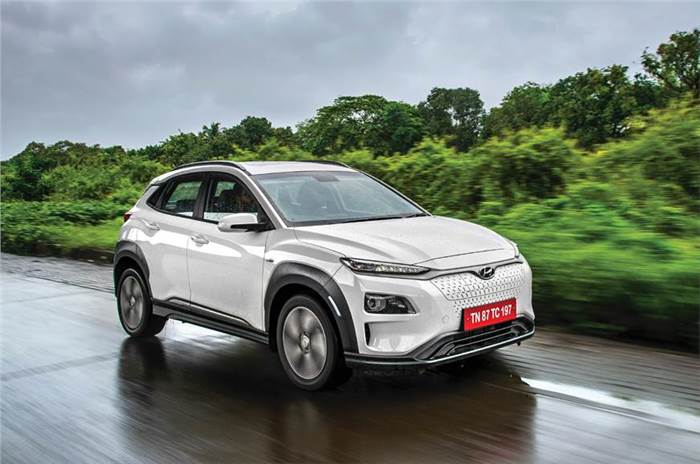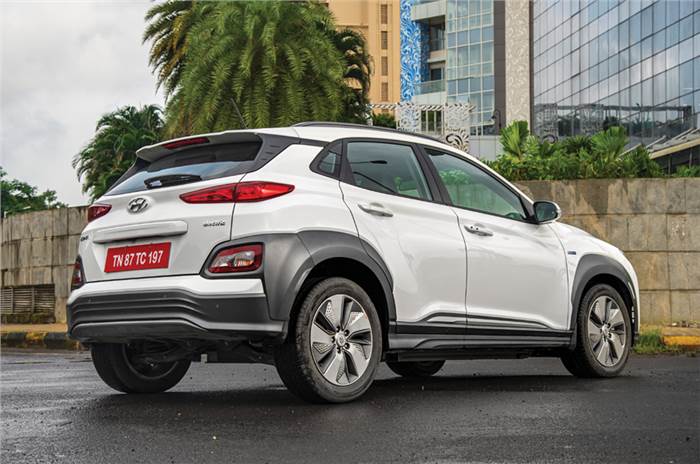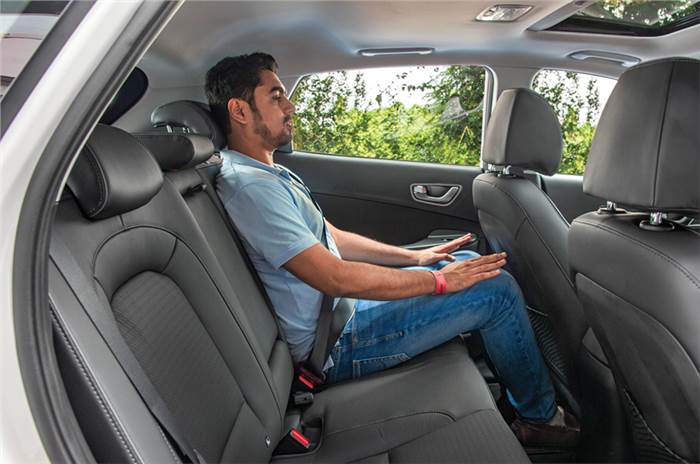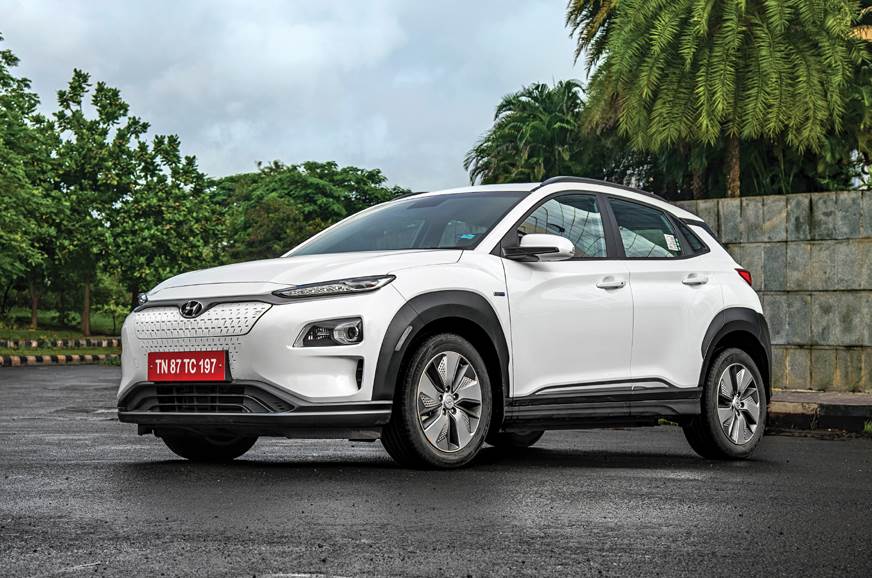2019 Hyundai Kona Electric review, road test
The Kona Electric sure looks interesting. But does it have the real-world performance and range to be considered as an alternative to conventional combustion engine cars?
Published on Sep 29, 2019 10:00:00 AM
1,18,877 Views
Follow us on

Rear windscreen isn’t very big, which limits the rear visibility.

Sunroof is small but helps bring in some light to make the all-black cabin feel airy.

Legroom and headroom are limited. Under-thigh support isn’t great either.
Buying and owning
The reduction in GST dropped the price of the Kona to Rs 23.72 lakh (ex-showroom, India). Hyundai is also offering a three-year/unlimited km standard warranty and three years road side assistance. For the battery pack, you get an eight-year/1,60,000km warranty as well.
The Kona Electric, like any other EV, is a step towards the ideal goal of environment-friendly vehicles by bringing emissions to nil. Even though India still relies on fossil fuels for electricity production, EV adoption goes a long way towards reducing carbon emissions.
If that isn’t motivation enough, people also expect the cost of electricity for running an EV to be much lower than what they’d spend on fuel for a regular car. Let’s break that down. The battery capacity of the Kona EV is 39.2kWh, which means it needs approximately 40 units of electricity for a full charge (1kWh = 1 unit). In India, a single unit of electricity costs around Rs 8 (for residential areas) depending on the service provider. So the cost for a full charge is around 40 units X Rs 8 = Rs 320. Going by our tests, in realistic driving conditions, it is quite easy to get a range of 300km. That makes the cost of driving the Kona 320/300 = Rs 1.1 per km. A diesel- or petrol-powered Elantra automatic, which is almost in the same price bracket, would cost you Rs 5 per km (diesel price = Rs 65 per litre) and Rs 6.8 per km (petrol price = Rs 72 per litre), respectively.
Verdict
Electric vehicles (and the infrastructure to support them) are still in their infancy in India. Still, it’s clear that the Kona is easily the most complete EV to go on sale in India today. It has a powerful motor that provides good performance; and once you install your own charger at home, provided you can, the Kona Electric even becomes practical. The battery allows you to travel 250-300km between charges in the city and charging it costs next to nothing.

It is, admittedly, lacking in a few areas. The interiors don’t feel very premium, especially for a Rs 25 lakh car – it’s cramped on the inside. The backseat is not comfortable and while it feels nippy around corners, the steering lacks feel and feedback. The Kona’s biggest challenge however is that Rs 25 lakh can alternatively get you one of the best SUVs on sale in India; something like a fully loaded Kia Seltos or even a Jeep Compass. Still, if you want to be an early adopter of the electric technology and are willing to overlook a lack of size, space, comfort and the added conveniences that petrol and diesel cars still have over EVs, The Hyundai Kona Electric could very well be your first electric. It sets very high standards for the future EVs coming our way.
Click here for Hyundai India models, prices, reviews, images, videos and more details
Copyright (c) Autocar India. All rights reserved.

